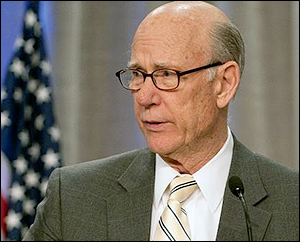By Jim Ellis
 Jan. 14, 2019 — The Morning Consult firm just released their quarterly ranking of Senate job approval scores. All 100 senators are surveyed, and the numbers cover the fourth quarter of 2018. Several categories are of interest.
Jan. 14, 2019 — The Morning Consult firm just released their quarterly ranking of Senate job approval scores. All 100 senators are surveyed, and the numbers cover the fourth quarter of 2018. Several categories are of interest.
First, a number of ratings are similar for both senators in a particular state. Vermont respondents were particularly pleased with Sens. Bernie Sanders (I/D-VT) and Patrick Leahy (D). The duo placed first and second nationally, with approval ratings of 64:28 percent and 62:23 percent favorable to unfavorable, respectively.
They were closely followed by Republican senators John Barrasso (R-WY; 62:26 percent) and John Thune (R-SD; 59:27 percent). The two senators’ state mates, Sens. Mike Enzi (R-WY; 56:27 percent) and Mike Rounds (R-SD; 56:29 percent), were also in the top 10.
Now-former Sen. Jeff Flake (R-AZ) recorded the worst rating in the body, with a 28:49 percent negative ratio. Two Senate leaders, Majority Leader Mitch McConnell (R-KY; 38:47 percent) and Minority Whip Dick Durbin (D-IL; 36:39 percent) were also in the Bottom 10.
Since this is the fourth quarter 2018 report, the five senators who lost re-election along with those who won competitive races are included. Below are their favorability scores Continue reading





